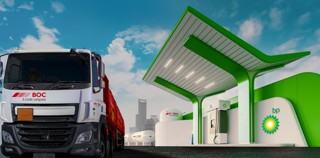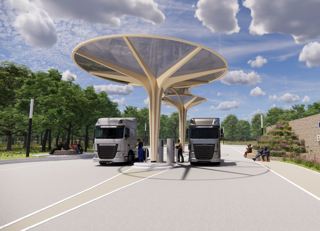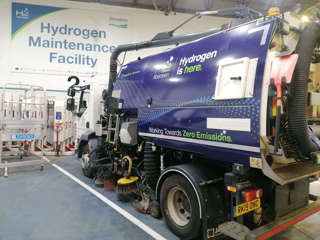Hydrogen will not be a realistic zero emissions option for van operators for at least another 10 years, warns the Association of Fleet Professionals.
The organisation is aware of a sizeable minority of fleet managers who are waiting to see whether hydrogen would become viable in the short to medium term, as battery electric vehicles
He added: “We’ve discussed this topic at some length at every level of the AFP and our conclusions are clear.
“Electric is effectively the only option when it comes to the future of zero emissions vans in the UK for at least the next decade.
“Hydrogen is simply not happening in any meaningful way and there is no real sign of that situation changing.
“The facts are that the hydrogen fuelling infrastructure barely exists, availability of vehicles is limited in the extreme and those that are available are very expensive.
“Apart from the introduction of one hydrogen van over the next year, we are seeing only minimal levels of investment in the fuel and certainly not on anything like the scale that would be required for widespread, rapid adoption.
“Elsewhere, such as in Germany, there is significant state support for the expansion of hydrogen but government commitment here is low.
“It is clear that as far as the vast majority of road transport is concerned, our politicians see electric as the future.
“Fleets waiting for hydrogen to emerge as a realistic alternative are almost certainty set for disappointment.”
The majority of fleets hoping for hydrogen are quite often those who also had significant reservations about the viability of battery electric for their operations, said Hollick.
This is because it is becoming clear to a significant proportion of operators that electric vans will not always be able to replace existing petrol or diesel models on a like-for-like basis because of compromises over range, charging times and payload, meaning they will often have to change their operational models and cause a degree of disruption to their business.”
He said hydrogen appears to provide a solution to this situation because of the ease of refuelling, but there are currently only around a dozen filling stations in the UK and “literally no programme for widespread expansion”.
“Rapid filling-up of a vehicle is meaningless when the nearest pump is 100 miles or more away.”
The infrastructure for generating green hydrogen on a large scale in the UK is also sorely lacking, he said, compared to other countries where there is investment happening and government support in place.
In July, First Hydrogen announced it will work with fleet operators to trial its hydrogen vehicles in their real-world operations.
The fleets comprise major operators from industries, including telecoms, express delivery, national utilities and national infrastructure companies, a national UK supermarket chain, a national vehicle breakdown and recovery association, an ambulance fleet and a national fleet leasing group.
























Login to comment
Comments
No comments have been made yet.